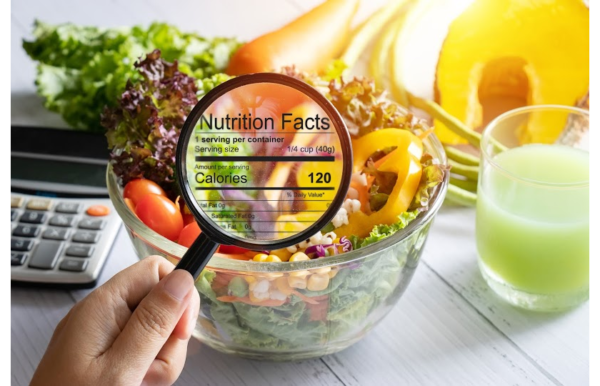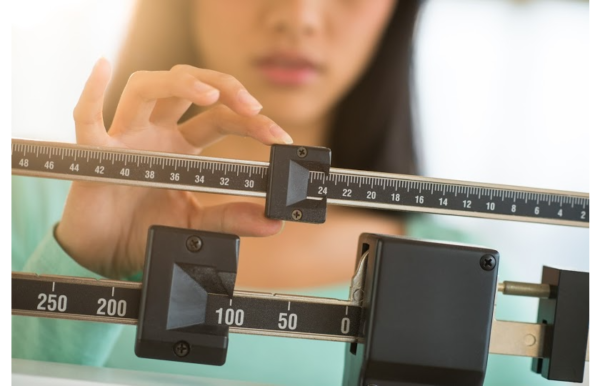Never before in history were we, as a society, that overweight.
Being overweight is almost becoming the new normal.
No wonder those 10 Worst weight loss myths delaying your success are flying around all the time.
Despite mainstream media’s efforts to normalize obesity, the inner impulse to strive to better ourselves and our circumstances burns in most of us.
So, if that’s you and you’re determined to regain your health, shed the unwanted pounds, and improve your life quality – please, don’t let these weight loss myths stop you!
10 Worst Weight Loss Myths Delaying Your Success
Myth #1: A calorie is a calorie

In principle weight loss is pretty simple – consume fewer calories than you burn throughout the day and you’ll lose weight.
The catch is that our bodies are much more complex and not all calories are equal given the effects they have on the body.
For example, 200 calories worth of donuts will cause a completely different physical reaction than, let’s say, 200 calories worth of steak.
This is what happens (explained in a very, very simplified way) when you eat foods high in sugar:
- The brain releases a bunch of feel-good hormones like serotonin and dopamine (much like when drugs such as cocaine are used – that’s why we get addicted to sugar as well).
- Blood sugar levels rise and the pancreas releases insulin to stabilize them.
- Meanwhile, you’re experiencing the familiar sugar rush and a boost of energy.
- Once the insulin does its job, the sugar crush settles in – you suddenly feel fatigued and eager for the next dose. It’s a vicious circle!
On the other hand, 200 calories of steak will take much longer to digest and thus keep you full longer. There won’t be any sudden drops in energy levels or any persistent cravings.
A protein-rich diet is linked to a faster metabolism and well-balanced weight-regulating hormones. (1, 2)
Focus on eating whole foods, fruits, and veggies, and avoid highly processed and energy-dense fat-rich fast foods.
Related read to the 10 Worst Weight Loss Myths Delaying Your Success:
How to improve sleep
Myth #2: Weight loss equals fat loss
When we talk about weight loss as a goal we usually mean fat loss.
What people desire is to shed unwanted fat while maintaining muscle. Only this can give you the desired body recomposition and that “fit” outlook.
If you were to simply reduce the amount of food you eat, you’ll certainly lose weight but you’ll most likely lose equal amounts of fat and muscle.
To prevent the loss of muscle as much as possible and lose mainly fat, increase your protein intake. A good number to go by is at least 1.5-1.7 grams of protein per kg of body weight.
Myth #3: Losing weight is a linear process

Well, it simply isn’t.
Don’t get upset about small fluctuations.
Our body weight is never constant.
You might be simply retaining more water than usual or still haven’t visited the bathroom this day.
We ladies are exceptionally susceptible to small weight fluctuations depending on the time of our menstrual cycle.
So don’t fret about it. As long as the general trend is in the right direction, you’re on a good track.
Myth #4: It’s all about willpower
Gaining weight doesn’t mean you’re weak-willed.
And the opposite – losing weight and maintaining it isn’t one never-ending, torturing exercise in willpower.
Of course, it does take some decisiveness and willpower to make the initial changes in your lifestyle – that’s never easy.
Once you turn these changes into habits, it becomes smooth sailing.
That’s the key to success – creating good habits.
Solid habits are the pillars of a sustainable, healthy lifestyle.
Nobody’s always motivated, nobody’s always perfect.
What helps us stay on track are the habits we nurture. Your habits will either make you or break you.
Related read to the 10 Worst Weight Loss Myths Delaying Your Success:
5 Sneaky habits that prevent you from losing weight
Myth #5: Carbs are the enemy
Carbs are essentially a quick energy source.
Use them to your best advantage to fuel your workouts or push through a long day of physical work.
Complex carbs like sweet potatoes, whole grains, beans, etc. will supply you with fibers (essential for digestion), and energy and keep you full longer.
The more physically active you are, the more it makes sense to add carbs to your diet.
It’s worth noting though that the only essential macronutrients are fats and proteins. This means that if you restrict the consumption of any of them, you’ll induce a deficiency, and consequently – health problems because our bodies can’t synthesize sufficient amounts on their own.
Proteins are responsible for the building of the body’s entire structure – from nails and hair to muscle tissue. Fats are the main energy source in a rested state, they promote cell growth and play a huge role in the production of important hormones.
So, while you shouldn’t restrict yourself from eating complex carbs, it seems clear which macronutrients need to be prevalent in a diet.
Myth #6: “Diet foods” help you lose weight
“Diet foods” are nothing more than a simple marketing trick. Be extremely skeptical of any labels, claiming to be “healthy” and fat-free, low-fat, sugar-free, or gluten-free.
Marketers in the food industry often try to take advantage of widespread weight loss myths (or even create them themselves).
Remember that those labels are hardly there to inform you or help you make a healthier choice. They are there to deceive you and make you buy it.
Substituting sugar for artificial sweeteners doesn’t make the product healthier. It makes it even more processed. Not to mention all the known and unknown side effects of the added chemicals.
It all boils down to the same point. If your goal is health (as it always should be), stay as far away as possible from any type of processed foods, and focus on whole foods with high nutritional value.
Myth #7: Weight-loss diets are the way to go
The reality: weight-loss diets are the way to yo-yo your whole life and a recipe for endless frustration.
Any diet promising you a quick fix, rapid weight loss, and a meal plan that sounds like a punishment is a sure scam.
Firstly, healthily losing weight takes time. You want to start with a moderate calorie deficiency – this generally means no more than 300-400 calories under your recommended maintenance calorie intake.
Second, don’t put your hope in a plan that simply can’t be sustained.
Can you survive long-term on an extreme diet? There’s no way.
Rest assured that once you return to your previous eating habits (and you will) the weight will come back faster than you lost it.
Be smarter than this. Change your habits for good!
Start with small steps – become more mindful of what you put in your body and how it affects you, do a short home workout, or just go for a walk.
Just start somewhere!
Related read to the 10 Worst Weight Loss Myths Delaying Your Success:
The Best Morning Routine for Health and Happiness
Myth #8: Losing weight means you have to starve yourself

If you still think that starving yourself is your only option to lose weight, you probably need to work on your relationship with food.
Starving yourself is:
- not sustainable
- going to deplete you of important macro- and micronutrients
- going to make you miserable
- going to mess up your hormones.
Eating is about nourishing your body, giving it the nutrients it needs for keeping us healthy, and – yes, it’s about enjoying it too.
Starving yourself is both mental and physical torture and is bound to fail you.
Instead of cutting down your food intake to ridiculously small portions, focus on the quality of your food and the nutrients you need.
Myth #9: You need to kill yourself at the gym
Successful and sustainable weight loss requires a major change in perspective, attitude, and habits.
It cannot be stressed enough how important sustainability is for the success of any weight loss journey.
This applies to both nutrition and activity levels.
Don’t overexert yourself in the gym. Especially if you’re new to it.
The body needs time to adapt and recover.
Start small and pay attention to how your body feels – you don’t want to risk getting an injury.
Put realistic goals in front of you – for example hitting the gym 3 days a week for an hour.
Try to walk more daily, maybe do a 5-minute stretch in the morning.
(Hint: Here are some back and hip stretching exercises that will make you feel like a newborn!)
Consistency will bring you further than any short-term maximum effort ever will.
Myth #10: Thyroid issues mean you’ll never be able to lose the excess weight
I have all the sympathy for those of you dealing with thyroid problems, having been through it myself.
One of the main symptoms of an underactive thyroid is gaining weight.
I’ve seen so many women with hypothyroidism either giving up and accepting that they can’t do anything about the weight gain or using this diagnosis as an excuse not to do anything about it.
The reality is that you absolutely CAN shed unwanted weight even with a thyroid problem.
Taking the steps towards a healthier lifestyle will surely alleviate your symptoms.
I agree that you’ll probably need to employ more of your willpower than a healthy person would. You’ll have to motivate yourself despite symptoms like depression, fatigue, and muscle weakness.
The fact remains that if you stay in a caloric deficit you’ll lose weight.
It’s a good idea to keep a journal of what you eat. This will help you keep a realistic overview of how many calories you consume (we often tend to misjudge how much we actually eat).
The bottom line
Obesity is an ever-growing health problem in today’s western world. No wonder it’s such a hot topic, naturally littered with countless weight loss myths.
Busy looking for quick solutions, we often overlook how simple things are.
There are no hidden pathways, no magic pills.
Build good habits, eat whole foods, manage your stress levels, and exercise. It’s all you need to focus on.
Related read to the 10 Worst Weight Loss Myths Delaying Your Success:
My CBD Oil experience – 6 Months using the best CBD oil